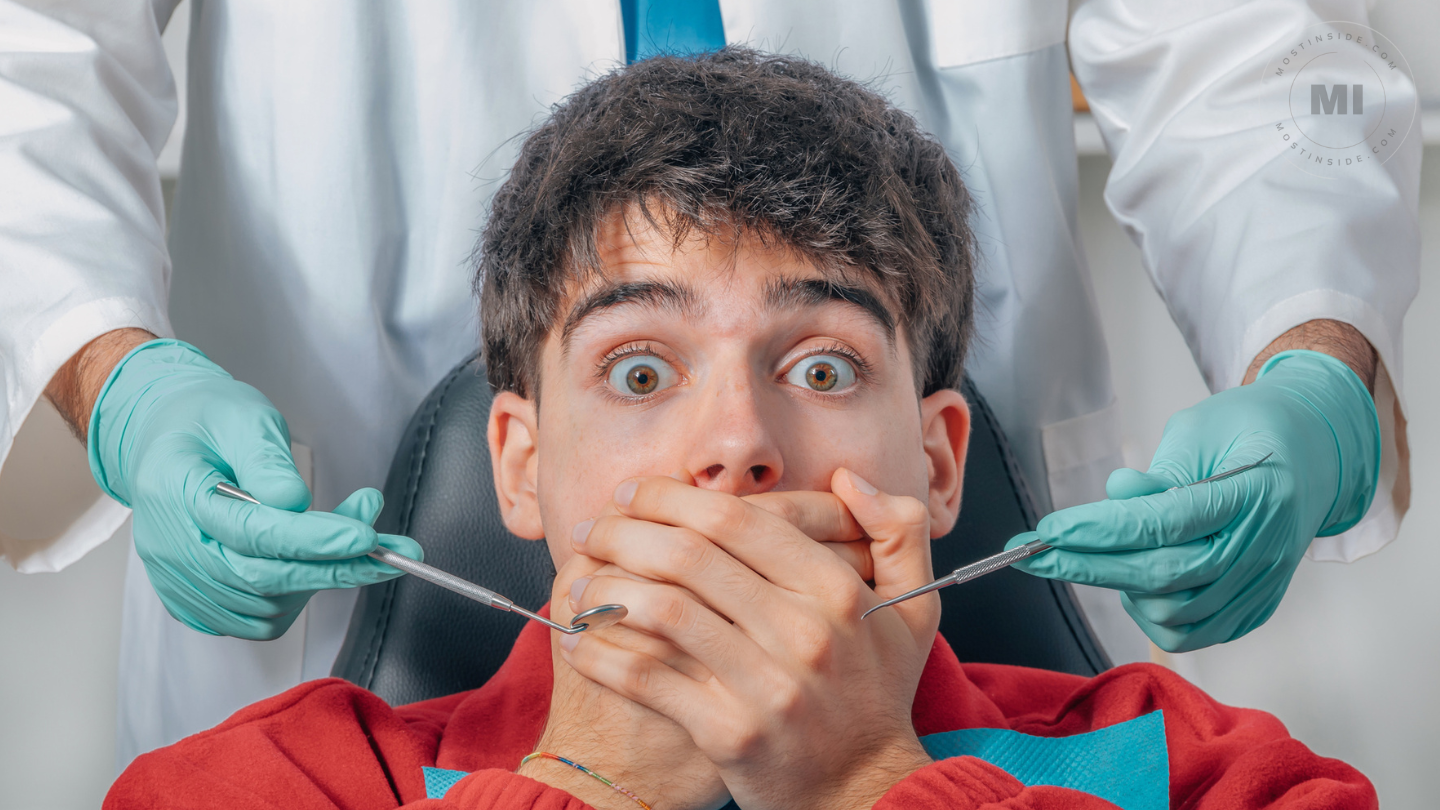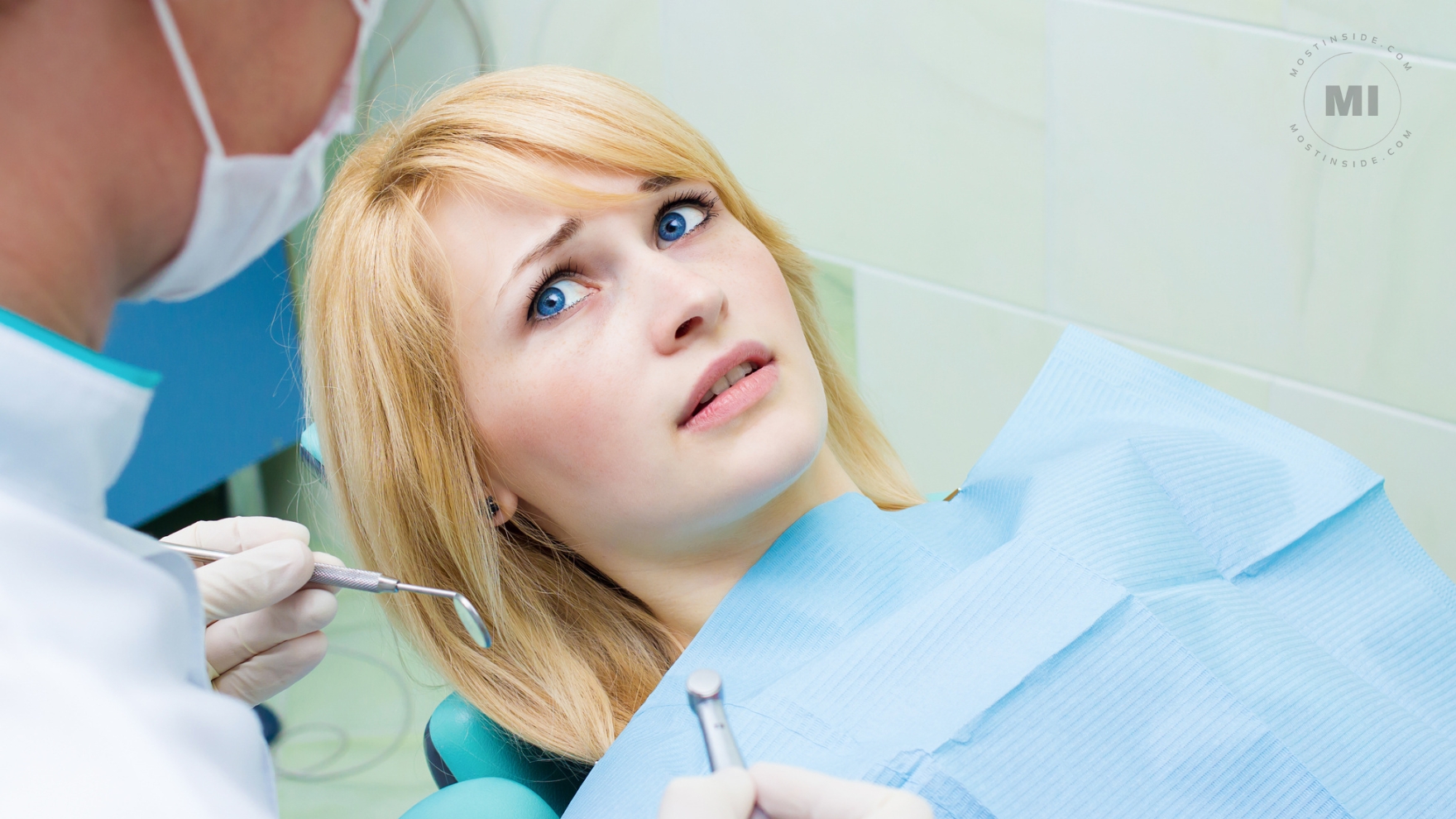Dental Anxiety: Signs And Coping Strategies

What comes to your mind when you hear the word dentist or when someone invites you to visit a dentist? Do you feel stressed, fearful, or anxious about it? If you do, you probably have a mental health condition called dental anxiety.
Dental anxiety is a mental health condition characterized by feelings of fear, stress, or anxiety when it comes to dental settings. Being anxious and fearful of dentists may delay urgent treatments, which can cause oral problems to worsen.
So, what can trigger dental anxiety? Dental drills, syringes, needles, and the entire dental setup can induce the condition. If you or a loved one has dental anxiety, your dentist may recommend sedation dentistry to ease your anxiety.
If you want to learn more about sedation dentistry and how it can help ease your anxiety, you may consult your local dentist or visit https://www.familydentalhealth.com/services/sedation-dentistry/ for more information.
Some mental health conditions may worsen or increase the risk of dental anxiety. These include generalized anxiety disorder, post-traumatic stress disorder (PTSD), a history of neck and head trauma, major depressive disorder, bipolar disorder, and schizophrenia.
In this post, you’ll learn the signs and symptoms of dental anxiety so you can find help as early as possible. You’ll also discover some coping techniques to help improve your quality of life despite your condition.
Is Dental Anxiety Different From Dental Phobia?
Before anything else, it’s important to understand the difference between dental anxiety and phobia. Yes, these two conditions are different, although they’re quite related. So, what makes one different from the other?
When dental anxiety becomes severe, it becomes a phobia. In other words, a dental phobia is a severe form of dental anxiety. This condition makes people feel terrified and overwhelmed even with the mere thought of visiting a dentist.
What Are The Signs And Symptoms Of Dental Anxiety?
Dental anxiety can be characterized by a range of signs and symptoms. If you present any of the following, you probably have dental anxiety:
- Excessive Sweating: Also known as hyperhidrosis, excessive sweating is sweating that’s neither related to heat nor exercise. It’s often a symptom of an underlying condition—in this case, dental anxiety.
- Excessive Palpitations: Also known as tachycardia, this symptom occurs when your heart beats too fast—faster than a normal heartbeat. It’s similar to your heartbeat after performing a cardio exercise.
- Syncope: Excessive fear and anxiety may cause a person to faint or experience transient loss of consciousness. A sudden panic attack, another symptom of dental anxiety, can also cause syncope.
- Low Blood Pressure: Anxiety is often associated with decreased blood pressure. When a person experiences intense anxiety, their body becomes extremely tired or overfatigued, causing low blood pressure.
- Signs Of Panic (Panic Attacks): Panic attacks occur when a person becomes terrified over something. These include breathlessness, disorientation, nausea, irregular heartbeats, and dry mouth.
- Aggressive Behavior: This is a consequence of disturbed emotions due to abnormally low and high levels of anxiety. Aggression and anger can be a means to avoid a feared stimulus (anxiety triggers).
- Withdrawal Or Self-Isolation: People with dental anxiety may isolate themselves from others because they feel too embarrassed to admit or show others they’re afraid of something.
- Constant Nagging: Nagging is an anxiety-driven behavior. It becomes more repetitive and violent when met with ambiguous responses and silence. This means your anxiety has taken over your life.
- Trouble Sleeping: If you have dental anxiety and an appointment with a dentist the next day, you might be having trouble sleeping the night before. That’s a common symptom of worsening anxiety.
- Nervousness: This is a common symptom of fear. If you’re afraid of something, it’s normal to feel nervous. But in the case of dental anxiety, nervousness might be more severe than usual. This can increase the risk of developing other symptoms.
If you or a loved one is experiencing one or more symptoms, consult a mental health professional to address your condition as soon as possible. They might prescribe you some anti-anxiety medications to help relieve some symptoms and calm your senses.

What Causes Dental Anxiety?
Common causes of dental anxiety are as follows:
- Fear Of Pain: This is a common reason people with dental anxiety avoid visiting a dentist. Usually, it stems from unpleasant or painful past experiences or stories from other people. But thanks to technology, most procedures are less painful than before.
- Fear Of Syringe: Many people fear injections, especially when their mouth is involved. Aside from that, they might worry that the anesthesia these injections contain may not work during the procedure.
- Fear Of Side Effects: Sometimes, people fear the side effects associated with anesthetics, triggering their anxiety. These include fainting, dizziness, drowsiness, nausea, vomiting, and discomfort.
- Embarrassment And Loss Of Privacy: Some patients are self-conscious when it comes to the appearance of their teeth and mouth. Also, they might not feel comfortable being too close to their dentist or dental hygienist.
- Trust Issues: Dental anxiety can be triggered when someone finds it difficult to trust their dentist. They think their dentist might worsen their condition or fail to do their best to keep them safe from harm and pain.
- History Of Generalized Anxiety Disorder: Generalized anxiety disorder is being excessively worried about day-to-day situations. If you have a history of this condition, it’ll be easy for you to develop dental anxiety.
These are the common causes of dental anxiety. If you’ve experienced a thing or two before, you might be at risk of developing this type of anxiety disorder. If you do, talk to a mental health professional to release your worries and overcome your fears.
How To Cope With Dental Anxiety?
There are many strategies that may help you manage your anxiety. Make sure to keep your dentist informed about your anxiety levels to help them create management programs suitable for your condition.
Here are some psychological coping mechanisms that may help relieve your fears so you can sit again in the dental chair:
-
Talk To Your Dentist
Proper communication can be effective against dental anxiety. Don’t be afraid to tell all your concerns to the dentist. They can make several adjustments so you can be more relaxed. Also, they can explain the entire procedure to give you an idea of what to expect.
Aside from that, they can recommend strategies to make you feel at ease and comfortable during your appointment. So, don’t hesitate to ask questions. If you know more about the procedure, you won’t be as anxious and fearful as the first time you sit in the dental chair.
-
Practice Breathing Exercises
Practicing breathing exercises is a great way to calm your mind and soothe your body. Doing these exercises can make you feel less stressed and anxious when visiting a dentist or dental hygienist.
Here are some breathing exercises you might want to try:
- Pursed Lip Breathing: Keep your shoulder and neck relaxed and close your mouth. Then, inhale through your nose. When you exhale, make sure your mouth is pursed as if you’re going to whistle.
- Diaphragmatic Breathing: Lie down on the floor with your knees bent. Then, place one hand below your ribs and the other on your chest to feel your diaphragm as you breathe. Inhale through your nose and exhale through your pursed lips.
- Equal Breathing: Sit comfortably. Then, inhale and exhale through your nose. Count your breathing and add a pause for every inhale and exhale. Do this breathing practice for at least five minutes.
- Resonant Breathing: Slowly inhale for five counts through your nose. Then, exhale for another five counts through your nose as well. Perform this breathing pattern continuously for a few minutes.
Alternatively, you may practice deep breathing by simply closing your eyes and slowly inhaling through your nose. Make sure to hold your breath for a couple of seconds before slowly exhaling it through your mouth.
-
Meditate
The longer you sit in the waiting room, the more anxious you become. Keep yourself relaxed and less stressed as you patiently wait your turn by meditating.
While waiting, make sure to sit as comfortably as possible. Then, close your eyes—you can also fix your sight on a particular object. After that, let your body fall into a state of deep relaxation.
Then, focus on the other parts of the body. Slowly release all the tension you’ve built up, from your head down to your toes.
Here are other ways to meditate while waiting in a dental clinic:
- Recite A Mantra: This approach allows you to repeat a meaningful phrase to promote relaxation and focus on your surroundings. A mantra doesn’t have to be a long phrase. Even a simple ‘aum’ is enough.
- Appreciate Nature Mindfully: Are there any plants around you? If there are, appreciate their beauty by feeling them, smelling them, and noticing their small details. This can help you feel more relaxed and even change your point of view.
- Listen To Calming Sounds: First, think of a sound that can calm your mind. Is it the sound of chirping birds, blowing winds, falling leaves, clapping thunders, or surging rainstorms?
It’d be best if you also try to meditate after your appointment with your dentist to keep your body and mind less stressed and calmer as you leave the office.
-
Guided Imagery
Guided imagery is a form of meditation. It focuses on visualizing a positive and peaceful sound, object, or scenario to soothe your mind and relax your body.
The main goal of guided imagery is to promote calmness through mindfulness meditation. This allows your body to react to your own thoughts. For example, your body becomes more tense when your mind concentrates on stressful situations. This also increases your blood pressure and heart rate, making you feel unfocused.
Here’s how you can do guided imagery during your dental appointment:
- Make yourself comfortable while sitting on a dentist’s chair.
- Keep your eyes closed and perform a basic deep breathing exercise.
- Imagine a blissful scenario: a green forest, a swaying tree, a quiet beach, or a lush grassland.
- You can also imagine a place that makes you feel relaxed.
- Go deeper and focus on the sounds involved in a particular scenario. For example, imagine the chirping of birds inside a lush forest.
- Picture yourself inside that particular scenario. Imagine you’re walking inside a lush forest with birds chirping everywhere. Focus on other details such as the scent of dewy leaves to make the scenario more realistic.
- Focus on your scenario for a few minutes and relax while breathing deeply.
- After several minutes, do a three-second countdown and slowly open your eyes.
When performing guided imagery, don’t forget to turn your phone’s ‘do not disturb’ feature to prevent any sounds and vibrations that may interrupt your meditation.
-
Take Analgesics
Analgesics are medications that may help relieve pain. These include ibuprofen, acetaminophen, and naproxen, which you can purchase over the counter. Your dentist may also use them to reduce your anxiety.
In most cases, dentists use nitrous oxide, also known as laughing gas, to keep you relaxed during a dental procedure. It may require a few minutes to take effect, but it wears off in a minute or two.
You may ask your doctor for other options such as anti-anxiety medication if you don’t like the sensation nitrous oxide provides.
-
Undergo Conscious Sedation
This type of medication is often administered via an intravenous line (IV), which is inserted into a vein of a hand or an arm. Usually, this is provided by an anesthetist or a dental sedationist.
Under sedation, you’ll feel relaxed and sleepy, but you’ll still be able to answer verbal questions and follow simple instructions. Side effects may include nausea and drowsiness, so it’d be best to have someone who can drive you home.
-
Take General Anesthetics
General anesthetics are often administered in a hospital setting by an anesthesiologist, a nurse anesthetist, or a dentist. This will make you completely asleep during the procedure. However, side effects may occur such as prolonged drowsiness and nausea.
Because general anesthetics are quite potent, it’s best to have someone to drive you home to avoid accidents that may cost you your life.
Final Words
Dental anxiety is a feeling of fear and anxiety triggered by a mere thought of a dental setup. Signs include fainting, nervousness, panic attacks, hyperhidrosis, tachycardia, and more.
To cope with symptoms of dental anxiety, you may practice meditation, deep breathing, and guided imagery. Your dentist may also provide some analgesics, anesthetics, and sedation to reduce your anxiety and make you feel more relaxed during the dental procedure.
Recommended For You
Why Would I Need Botox Injections?
Most Inside
Most Inside offers high-quality recommendations and valuable updates to enhance all aspects of your life, providing premium guidance and enriching experiences.




